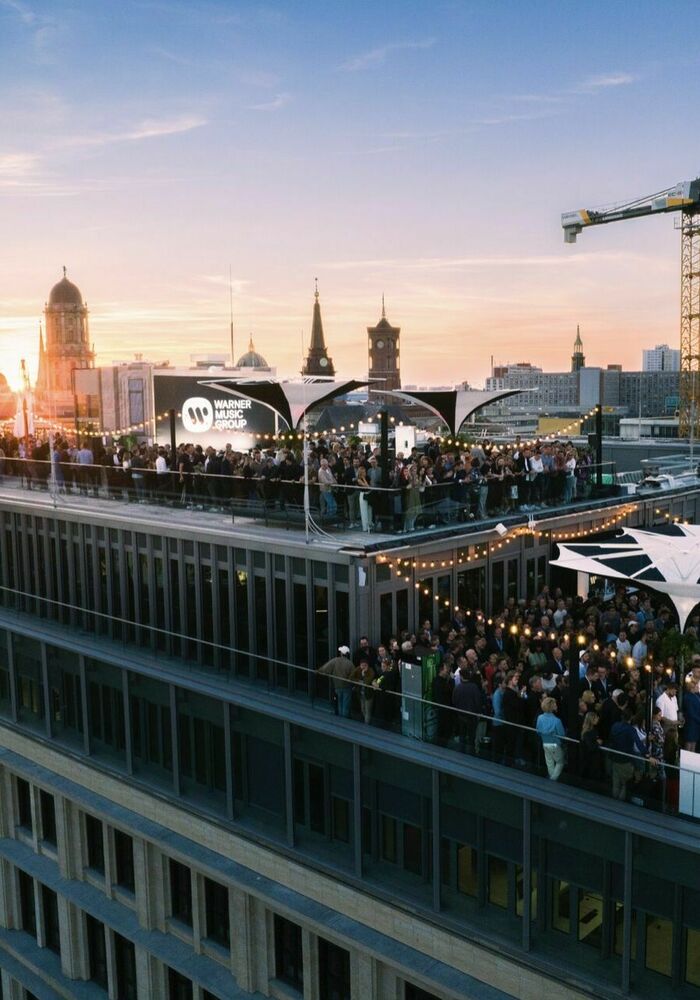Warner Music Central Europe co-presidents Doreen Schimk and Fabian Drebes have spoken to Headliner about the launch of the company’s new Berlin creative hub, as well as what it takes to break an act in today’s market.
“It’s been a very busy time,” Fabian Drebes exhales with a smile as he and Doreen Schimk take their seats either side of a long desk inside one of the pristine new meeting rooms at Warner Music Group’s new Berlin creative hub. It’s the day of the grand opening and Headliner has been invited for a chat with the co-presidents of Warner Music Central Europe a few hours before the doors officially open to a raft of senior executives from across the business, press from around the world, and numerous artists from its roster.
There’s a frenetic energy in the building as the final touches are applied to the various offices, communal spaces and listening rooms. An hour before we sit down with Drebes and Schimk, we were also granted an audience with Lars Karlsson, MD, Warner Chappell Music Germany, Switzerland and Austria, and Scandinavia, and Natascha Augustin, VP, Warner Chappell Music Germany, as the pair discussed at length the publisher’s domestic dominance and A&R culture (read here). Each pair of leaders have accumulated multiple decades’ worth of experience at Warner, something which they all cite as an essential component of their vision with regards to the company’s recorded music and publishing arms, as well as the creation of the new Berlin space.
“We took over leadership in 2021 coming out of the pandemic and facing questions of how we want to work and the work environment we wanted to create,” Schimk says of how the idea for a Berlin hub came about. “And it seemed obvious to us that we wanted to have a bigger space in Berlin. Germany is a very de-centralized market, it’s not like the UK where everything happens in London. In Germany it’s Frankfurt, Munich, Hamburg, and over the last 20 years Berlin has become one of the most exciting spots when it comes to start-ups, tech, and the creative scene. So it was obvious we needed to have a bigger footprint here. We wanted to provide a space where you can have songwriting sessions, where people can come together and be part of the creative scene here.”
Between them, Drebes and Schimk have built a vast network of global connections and relationships, which has laid the foundations for where they want to take the company over the coming months and years.
“We completely live the DNA of Warner Music Group,” says Drebes. “And of course, it helps when you know exactly what the brand stands for. We both built our internal networks in the company, and we are super-fast when it comes to global collaboration. That is a huge benefit for our people and our artists. We can move things globally in a second because of the robust network and relationships we have. I’ve been here almost 20 years and have had many roles, from video promoter back when MTV was big, to product management, marketing, and before this, I was overseeing the international marketing in Germany, Austria, and Switzerland.”
“And I’ve been with Warner now for 12 years,” adds Schimk. “And Fabian and I have known each other for a long time, so it’s a privilege for us to write this new chapter together for Warner Music.”




